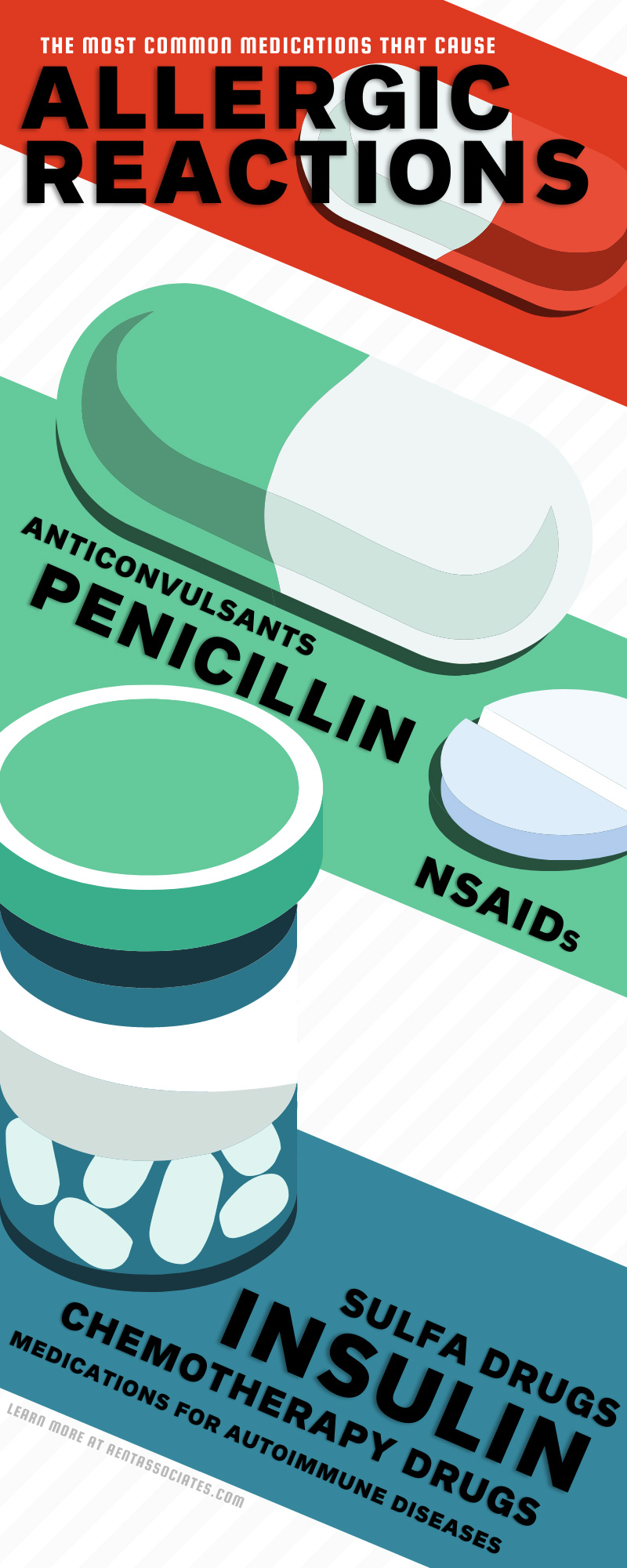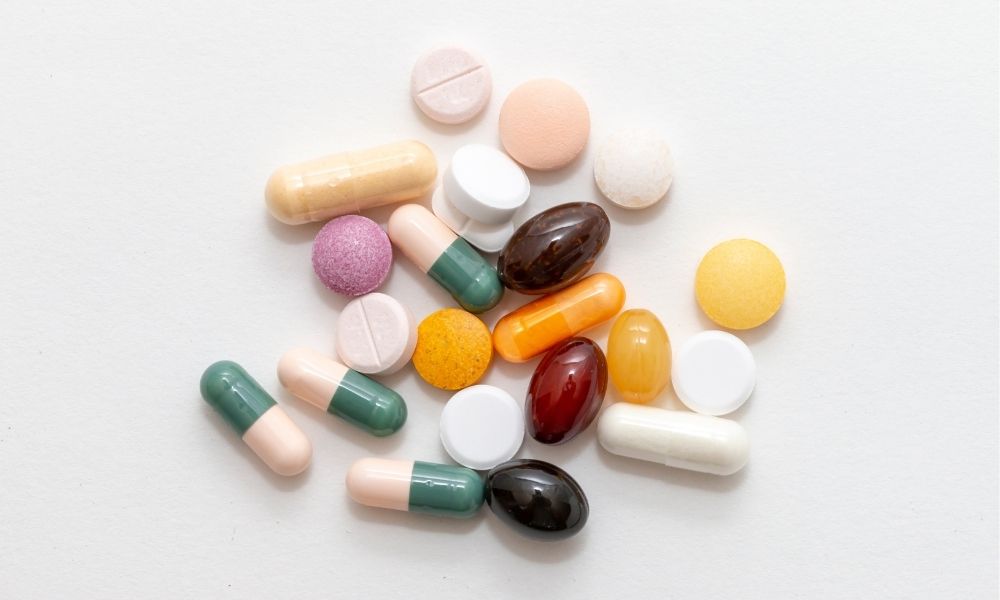When we think of allergies, the first types that often come to mind are ones related to food, animals, or the environment. However, there’s another very serious type of allergy that can lead to many issues as well, which involves taking a drug that your body’s immune system might fight against and create histamine. Medications can do a lot to our bodies, even when they are designed to help us. With drug reactions affecting as much as 10% of the world’s population, it’s important to be aware of the most common medications that can cause allergic reactions. Continue reading to learn about the different symptoms you might experience, the different drugs that tend to cause these reactions, and what you can do to treat the condition.
Symptoms
In order to know which medications may cause allergic reactions, you also need to be aware of the symptoms that can come from them. If you have a drug allergy, you will often start to feel the symptoms within an hour of taking the medication. Here are the most common signs that you may have a drug allergy:
- Skin rash or hives
- Itching
- Fever
- Swelling
- Wheezing or other breathing issues
- Runny nose
- Itchy, watery eyes
If you have a drug allergy, there’s also a chance that you could suffer from a rare allergic reaction called anaphylaxis, which can lead to the dysfunction of certain body systems. Some other conditions that cause allergic reactions can occur once you stop taking the drug, including:
- Drug-induced anemia
- Drug rash with eosinophilia and systemic symptoms
- Nephritis
- Serum sickness
Risk Factors
Anyone can be at risk in terms of having an allergy reaction when taking a drug, but there are also some variables at play that can make certain people more vulnerable. Some of these risk factors that you should be aware of are:
- A medical history of other allergies
- Family history of drug allergies
- Increased exposure to a specific drug
- Having an illness such as HIV that is often associated with an allergic drug reaction
Medications
Now we can get into the different medications that typically cause the allergic reactions we mentioned previously.
Penicillin
This is a common medication that is used to treat bacterial infections such as pneumonia, scarlet fever, respiratory tract infections, and more. Penicillin and other antibiotics like it are known to be among the most common medications that cause allergic reactions. It’s worth noting that if you are someone who had a penicillin allergy as a child, there’s a good chance that you may eventually outgrow the allergic reactions that come with it if you steer clear of the drug for several years.
Chemotherapy Drugs
Chemotherapy is perhaps the most common way to treat cancer. Chemotherapy drugs are known to have many side effects, one of which is allergic reactions.
NSAIDs
Nonsteroidal anti-inflammatory drugs such as aspirin and ibuprofen are another drug that can cause an allergic reaction. It’s important to note that people who are allergic to aspirin are typically allergic to other NSAIDs as well. It may take a while to develop an allergic reaction to NSAIDs, so even if you take a certain NSAID regularly, you still may not experience an allergic reaction until later in your life.
Anticonvulsants
Another drug that has been found to cause an allergic reaction are anticonvulsants. These drugs are used in treatment for various conditions, including epileptic seizures and bipolar disorder.
Sulfa Drugs
There are other antibiotics that can cause allergic reactions as well, especially if they have sulfonamides in them.
Medications for Autoimmune Diseases
If you are someone who suffers from an autoimmune disease, some of the medications that you may take for treatment could lead to an allergic reaction as well.
Insulin
This hormone is important for the body because it regulates how much glucose lies in your blood. People who lack enough insulin may be diagnosed with diabetes, which will then lead them to take insulin so they can maintain sufficient blood glucose levels. Undergoing insulin injections can also result in an allergic reaction.
Diagnosis
If you suffer from symptoms commonly associated with a drug allergy, you might also be wondering how a doctor determines whether you are, in fact, allergic. There are two common ways to form a diagnosis. If you are suffering from an allergic reaction after taking penicillin, for instance, a doctor might take a skin test or skin prick test. This means a doctor will place a small amount of the allergen on your skin to create a controlled response.
Another method of diagnosis a doctor may use involves trying what is known as a drug challenge. This test is similar to the one done for a penicillin allergy and involves a doctor giving a patient small doses of a drug and watching and analyzing how their body reacts.
Prevention
It can be difficult to prevent a drug allergy, as you must take the medication to see if it sparks a reaction in the first place. This is why paying attention to your body’s reaction to certain drugs, then receiving a diagnosis is the best place where you can start, especially when it comes to new drugs that you have just started taking. Once you receive a proper diagnosis, you can do the best thing for yourself, which is to stay away from the drug that causes the allergic reaction. While the drug allergy will become part of your official medical history, you should still let healthcare professionals know about your allergy in advance or wear a bracelet that says as much. This enables them to take the next best course of action for your treatment.
See a Local Allergist
If you start to notice that you are experiencing any of the symptoms listed above after taking these common medications, your best option is to visit an allergist. An allergist will be able to properly assess your symptoms and perform tests to reach a diagnosis. A drug allergy can be a serious thing to live with, and it’s best that you do not ignore the symptoms. Seek a Houston allergist at one of our Allergy and ENT Associates clinics to find out if you have a drug allergy and ensure you don’t cause any more harm to yourself by taking medications that don’t agree with your body.



